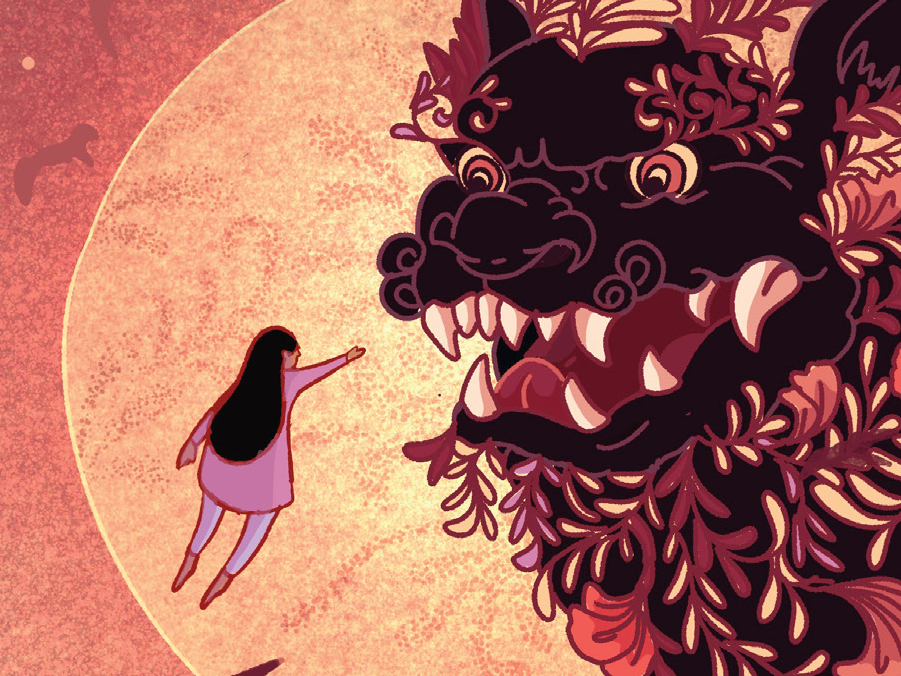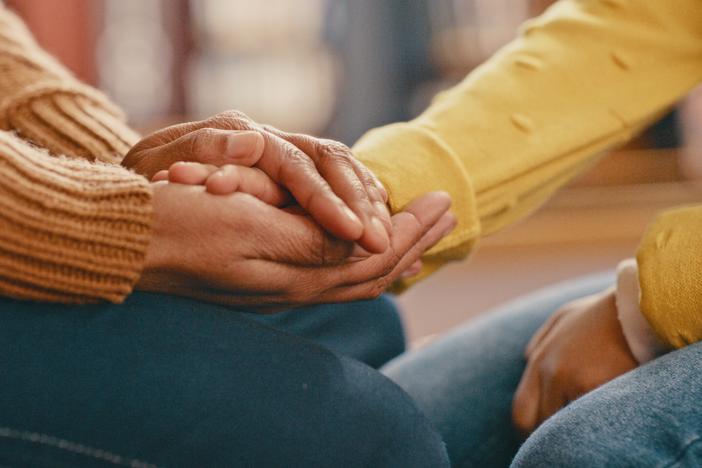Section Branding
Header Content
This book of poetry says, 'I have fists,' and the world needs to know
Primary Content
Fists curling and uncurling. People who don't look each other in the eye. Food, and everyone coming together around it. These are the images at the core of Jane Wong's second collection of poems, How To Not Be Afraid Of Everything.
"That turning around when I walk down the street, always feeling like I have to look behind me?" Wong says. "That's the feeling of this book."
In her poems, Wong depicts how fear accompanies Chinese immigrant life in the United States by bringing us her family's history of migration, and their relationship with food.
"I grew up in a Chinese-American takeout restaurant on the Jersey Shore, literally surrounded by food and feeding other people," Wong says. "And growing up in a restaurant, everything feels so greasy and gloopy and there's sounds of woks firing. I would come home and I would smell chicken broth."
But even though Wong lived in a space of what she calls "synesthesia and gluttony," her ancestors had a different experience. In college, Wong learned about the Great Leap Forward — an economic program put in place by the Chinese Communist Party in the late '50s that set off one of the largest famines in human history.
Here's an excerpt from one of the poems in the book:
... Our teeth: little needles to stitch a factory of
everything made in China. You ask: Are you hungry?
Hunger eats through the air like ozone. You ask: What
does it mean to be rootless? Roots are good to use as
toothpicks ...
Millions died during the Great Leap, and among them were Wong's own ancestors. But they never spoke about it.
"My family would just use the term 'they disappeared,'" Wong says.
So when she talks about fear in her book, she means the kind of fear that turns into rage.
"That rage can be very internal," Wong says. "As someone who is an Asian-American woman, the assumption is that I'm going to be quiet and I'm not going to be mad."
And part of this rage is the trauma carried forward from her ancestors' silence about their painful history. Learning that her family had experienced the Great Leap Forward resonated with Wong's sense of what it meant to grow up in plenty but come from hunger.
"In writing this book, I did not conduct quote-unquote interviews. I didn't do quote-unquote research with my family directly, because it would be too painful," Wong says. "Instead, I just listened really deeply. Like, what are they not saying? And what does that mean?"
Here's an excerpt from her long poem "When You Died":
Did you wonder what was coming home?
No loyal dog, no father, no mother in cleanpressed linen, no river to wash away
the dirt from your eyes? Know this:your eyes are large enough to build
a ditch in. If the sky is red, stay inside.Do not look anyone in the eye or
you will turn into a pot. No one wantsto be a pot to cook nothing with.
Wang's book is dedicated to her grandparents, and those who perished in the Great Leap. She says she wants her poems to try and fill the distance between abundance and hunger, and convey the power that comes with breaking silence and not being afraid of rage.
"This book feels very much like it's trying to make sure everyone sees that I have fists and they are curling and uncurling at all times," Wong says.
This story was edited for radio by Reena Advani and adapted for the web by Jeevika Verma and Petra Mayer.
Copyright 2021 NPR. To see more, visit https://www.npr.org.
Bottom Content



